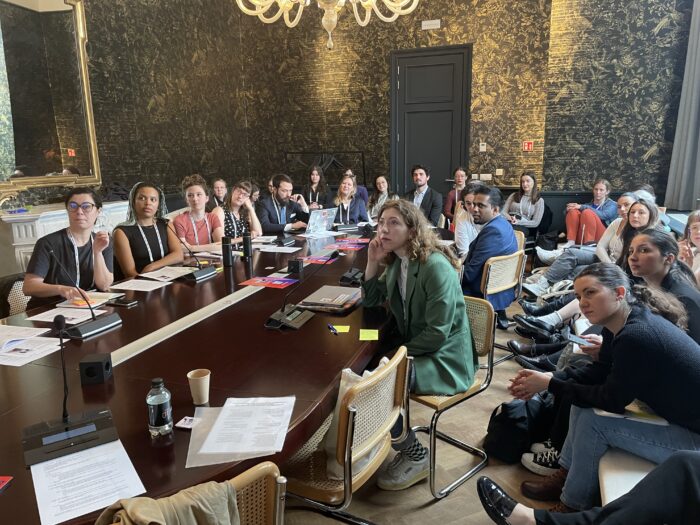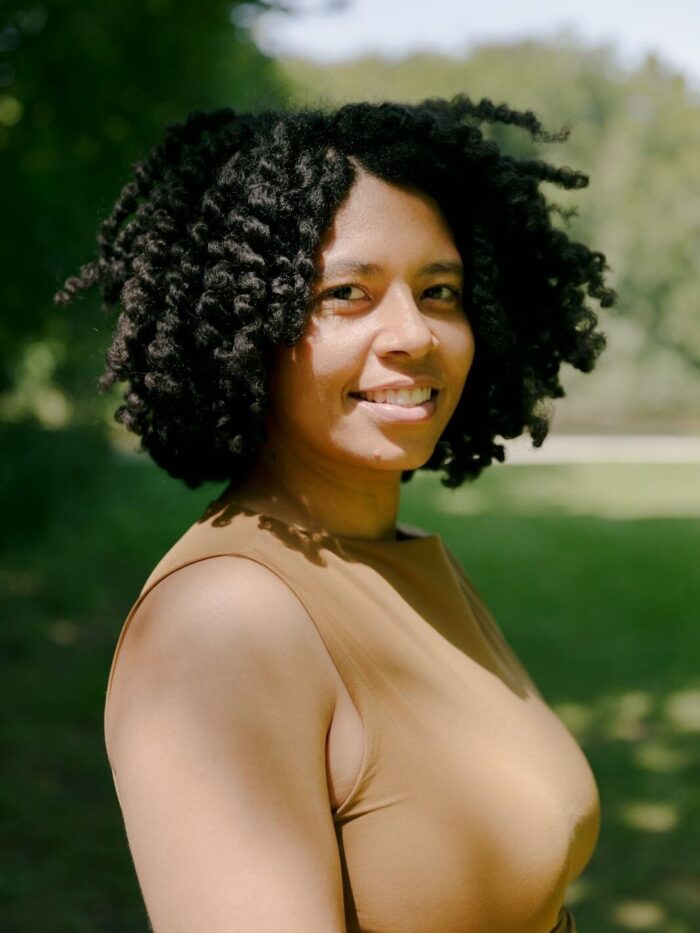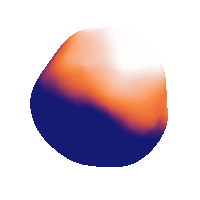The Digital Period
The Digital Period is a public philosophy project about our relationship with technology: how we relate to ourselves, to each other, and to the world.
Each season of the podcast focuses on a specific type of technology, such as period trackers, dating apps, or social feeds, and the values they express.
The Digital Period is more than a podcast. It is a public conversation, a research practise, and a method for reflection.

Judith Zoë Blijden
The Digital Period is created by me, Judith Zoë Blijden, LLM, MA. I am lawyer and philosopher based in the Netherlands. I work at the intersection of research, policy, and art. I am the founder of Is This Art Maybe and the creator of The Digital Period, a philosophy project on our relationship with technology.
In addition I work as a senior legal consultant for Hooghiemstra & Partners, consultancy focussing on data protection. Previously, I served as a board member at Bits of Freedom, and worked at the Dutch think tank Kennisland and the Social Economic Council of the Netherlands (SER).

Public philosophy
Public philosophy is about thinking with each other, bringing philosophy outside of the walls of academic institutions. It’s an exercise in thinking and in doing. Thinking together not only generates new ideas, it also builds new communities.
This project explores both the design of technology and the conditions in which it is created and used. It centres lived experience as a form of knowledge and treats public dialogue as an essential part of understanding.
We value the public sphere as a place of knowledge.
Methodology
The Digital Period uses a layered, iterative, and relational method. Every season grows through five overlapping phases:
- Ideation
Exploring a digital theme through academic literature and interviews with academics and experts - Lived experiences
Talking to people with direct experience users, builders, and activists - Iteration
Recording, editing, and reflecting - Interaction
Sharing insights in public settings like events, workshops, and exhibitions - Dissemination
Sharing the podcast along side an online media campaign.
Principles
The project, its methodology, structure and the outcomes are built on three principles:
- Curiosity.
I am committed to staying open to what I do not yet know. This includes a willingness to be wrong, to sit with disagreement, and to make space for the unexpected. This does not mean I do not take positions, I do, but it does mean I allow for myself and others to change my mind. - Positionality.
Everyone’s individual social and political context, such as identity, background, beliefs, and power dynamics, shapes their perspective, knowledge, and interactions. I aim to be transparent about my own context and the context in which knowledge is shared by others. - A deontological ethics of dialogue.
The conversations I facilitate are not designed to produce predetermined outcomes, but are meant to be valuable in themselves as meaningful exchanges for all participants. This approach resists extractive forms of interviewing by treating dialogue as a horizontal, relational process—one in which knowledge is co-created rather than extracted.
